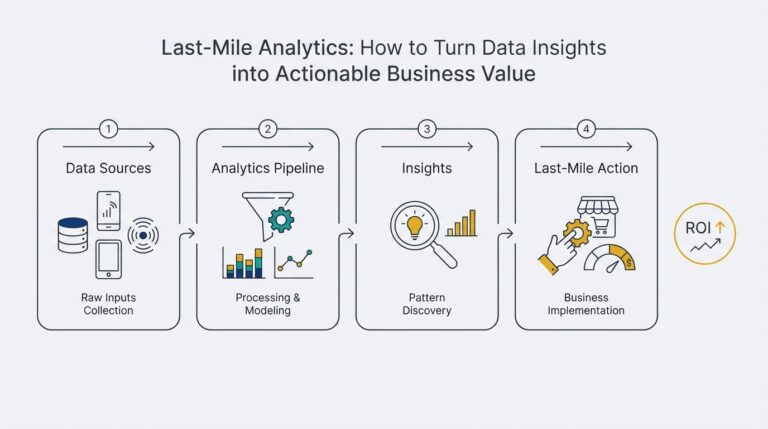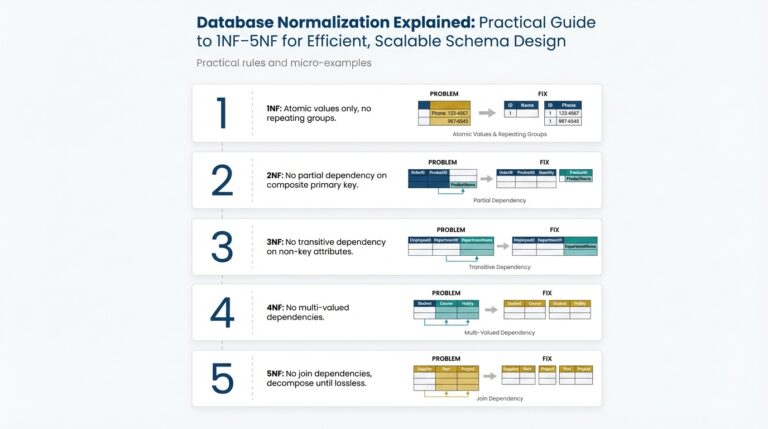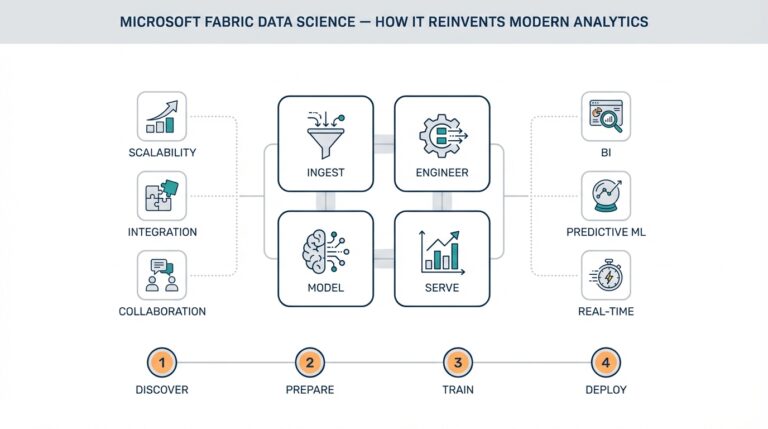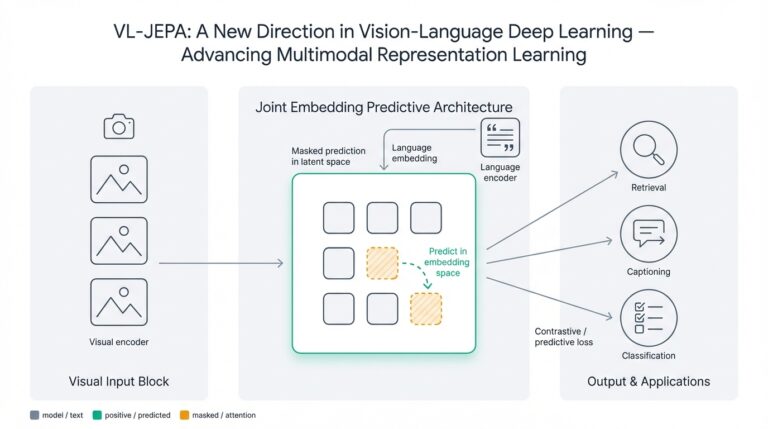Introduction to AI Tools in 2025
As we step into the year 2025, the landscape of artificial intelligence tools has significantly evolved, marking a new era in how businesses and individuals interact with technology. AI tools of this time are characterized by their advanced capabilities, integration ease, and transformative potential across various industries.
Key Features of AI Tools in 2025
-
Natural Language Processing (NLP) Advances: AI tools now include highly refined NLP capabilities, allowing them to understand context, intent, and nuances in human language like never before. This feature enhances user interaction, making it more intuitive and seamless.
-
Cross-platform Integration: Modern AI tools are designed to integrate effortlessly across multiple platforms. Whether it’s business communication through email, social media management, or customer support, these tools can effortlessly connect and operate within existing systems.
-
Increased Data Processing Power: With the evolution of cloud computing and edge computing, AI tools in 2025 can process vast amounts of data in real time. This enables faster decision-making and insight generation, crucial for industries such as finance, healthcare, and logistics.
Categories of AI Tools
-
Generative AI:
– Tools like language models are now capable of producing human-like text, offering creative solutions for content creation, marketing, and beyond.
– Enhanced capabilities allow them to generate not just text, but also images, audio, and even video content, revolutionizing fields like media production and advertising. -
Predictive AI:
– These tools are vital for foreseeing trends and behaviors based on historical data.
– Industries such as retail and manufacturing leverage predictive AI to optimize inventory, forecast demand, and improve supply chain efficiencies. -
AI for Automation:
– Automation tools powered by AI streamline workflows by taking over repetitive, mundane tasks, thus freeing up human resources for more complex activities.
– Examples include robotic process automation (RPA) used in finance and HR to manage and automate transactional processes.
Examples of Influential AI Tools
- ChatGPT 2025 Edition:
-
This version of ChatGPT includes enhanced personalization features, adapting its responses based on user interaction history to deliver more relevant and engaging dialogues.
-
Google Gemini:
-
Google’s Gemini is a robust, multi-purpose AI tool that processes natural language, vision, and auditory information, providing comprehensive solutions for business analytics and consumer interaction.
-
Claude AI System:
- Known for its ethical AI capabilities, Claude focuses on responsible AI deployment. It includes features that ensure compliance with data privacy norms and maintain transparency in AI decision-making.
Key Trends Influencing AI Tool Development
- Ethical and Responsible AI:
-
Developers prioritize ethical standards, aiming to make AI more transparent and less biased, while actively engaging with regulatory bodies to shape AI policies.
-
User-centric Design:
-
The focus has shifted towards making AI tools more user-friendly, with interfaces that require minimal technical expertise to operate.
-
Adaptive Learning:
- AI tools now possess the ability to learn and adapt from user inputs over time, improving their functionality and user satisfaction continuously.
In essence, the AI tools of 2025 are set to redefine traditional workflows, fostering innovation and efficiency in unprecedented ways. This leap is underpinned by a commitment to ethics, usability, and integration power that aligns with emerging technological and societal needs.
Overview of ChatGPT, Gemini, and Claude
ChatGPT 2025 Edition
ChatGPT has been a major player in the field of conversational AI, and its 2025 edition further cements its position by advancing personal interaction capabilities and contextual understanding. Here’s a closer look at its features:
-
Enhanced Personalization: This version uses sophisticated AI algorithms to adapt responses based on historical interactions. For example, if a user frequently asks about travel advice, ChatGPT can prioritize and tailor responses to show relevant updates or new travel trends.
-
Nuanced Dialogue Management: ChatGPT now supports more dynamic conversation flows, enabling it to manage interruptions and smoothly transition between topics, ensuring a natural and engaging user experience.
-
Integration with Enterprise Systems: Designed for seamless operation across platforms, it can be integrated into CRM systems, enhancing customer interaction by providing real-time responses and solutions.
-
Multimodal Capabilities: Beyond text, ChatGPT now supports voice inputs and outputs, allowing for broader accessibility and utility across various user preferences and needs.
Google Gemini
Google Gemini emerges as a significant evolution in AI, integrating vision, language, and auditory processing to empower businesses with broader analytical skills:
-
Multi-Modal Intelligence: Gemini’s ability to process images, text, and audio simultaneously allows for robust analytical insights. For instance, it can analyze a meeting transcript, identify key action points, and generate summarized reports, all while maintaining context.
-
Adaptable Learning: Using a form of continuous learning, Gemini adapts to new data efficiently, making it a powerful tool for evolving business needs. Retailers, for example, use it to adjust marketing strategies based on real-time consumer sentiment analysis.
-
Scalable Solutions: Easily scalable, Gemini can be deployed across vast networks, from small team collaborations to enterprise-level deployments, with flexible APIs allowing for easy extensions and custom functionality.
-
Efficient Data Handling: Gemini excels in processing large data sets with speed and precision, leveraging cloud infrastructure to support tasks like predictive analytics and business intelligence insights.
Claude AI System
Claude AI stands out for its strong emphasis on ethical AI, focusing on transparency, fairness, and privacy:
-
Ethical AI Pioneering: It incorporates tools for bias detection and fairness auditing in AI models, ensuring decisions are equitable across diverse user demographics. For instance, in hiring processes, it audits recruitment algorithms to prevent discrimination.
-
Privacy-Centric Design: With end-to-end encryption and strict data governance protocols, Claude is designed to comply with global data protection regulations, making it a preferred choice in sectors with stringent privacy needs like healthcare and finance.
-
User-Centric AI Tools: Designed with the end-user in mind, Claude emphasizes simple interfaces and intuitive functionality, making it accessible even for non-technical users.
-
Transparent AI Interactions: It includes features that allow users to understand the reasoning behind AI decisions, promoting trust and insightful feedback loops.
Each of these AI tools offers unique capabilities aimed at enhancing productivity and driving innovation in various sectors, from personal use to complex business environments. Their advancements in contextual understanding, integration, adaptability, and ethical considerations make them indispensable tools in the year 2025.
Key Features and Capabilities Comparison
ChatGPT 2025 vs. Google Gemini vs. Claude AI: An In-Depth Examination
Natural Language Processing (NLP)
- ChatGPT: Excels in understanding and generating nuanced written and spoken language. It features dynamic conversation abilities that manage interruptions and topic shifts naturally.
- Google Gemini: Offers extensive NLP capabilities integrated with multi-modal learning, allowing it to glean insights from combined text, audio, and visual data.
- Claude AI: Prioritizes ethically responsible NLP, including transparency in conversations, ensuring users understand the rationale behind AI interactions.
Integration and Interoperability
- ChatGPT: Seamlessly integrates with enterprise systems like CRM and ERP platforms, enhancing its utility in business environments for real-time, context-aware interactions.
- Google Gemini: Provides expansive integration through APIs that allow users to tailor functionalities to specific requirements across varied business environments.
- Claude AI: Focuses on integrating ethical auditing tools across different platforms, supporting compliance and data transparency.
Data Processing and Handling
- ChatGPT: Leverages cloud infrastructure to offer real-time processing, enabling instant decision-making with a focus on optimized user interactions.
- Google Gemini: Handles significant data volumes with high precision through cloud and edge computing, facilitating complex data-driven tasks like predictive analytics.
- Claude AI: Employs privacy-centric protocols and end-to-end encryption to prioritize data protection, especially vital for sensitive industries.
Adaptive Learning and Customization
- ChatGPT: Learns from user interactions to enhance personalization, ensuring its responses become more aligned with user expectations over time.
- Google Gemini: Uses continuous learning algorithms to adapt swiftly to new data inputs, making it highly effective for industries that demand agility.
- Claude AI: Offers customization focused on ethical constraints, such as bias detection and fairness adjustments, ensuring equitable user interactions.
Ethical Standards and Privacy
- ChatGPT: Implements basic privacy protocols but focuses mainly on user engagement and interaction quality.
- Google Gemini: Balances powerful data handling with adaptive learning while ensuring privacy through sophisticated data management tools.
- Claude AI: Epitomizes ethical AI, incorporating stringent privacy measures and fairness auditing, setting a benchmark in responsible AI usage.
Usability and Access
- ChatGPT: Known for its intuitive user interface and natural interaction style, making it highly accessible even to non-specialist users.
- Google Gemini: Provides user-centric designs with scalable solutions suitable for both SMEs and large enterprises.
- Claude AI: Delivers straightforward interfaces, emphasizing transparency to build trust with end-users through understandable AI decision-making processes.
Together, the comparison of these AI systems offers valuable insights into how each tool matches specific needs based on their key capabilities and ethical considerations. While ChatGPT focuses on enhancing interaction, Google Gemini excels in adaptive business solutions, and Claude AI leads in ethical AI deployment. Each tool complements different aspects of AI utility in 2025, catering to diverse operational and technological demands.
Performance Benchmarks and User Feedback
In the rapidly evolving field of AI tools in 2025, evaluating performance benchmarks and incorporating user feedback are critical for determining the effectiveness and adaptability of these systems. Here’s an in-depth look at the performance metrics and user experiences tied to some leading AI tools like ChatGPT, Google Gemini, and Claude AI.
Performance Metrics
-
Processing Speed and Efficiency
– ChatGPT: Known for its replication speed in generating text and managing high input volumes seamlessly. Benchmarks indicate a response time of under 0.5 seconds per message in standard environments, showcasing significant advancements in efficiency due to optimized algorithms.
– Google Gemini: Excels in processing multi-modal data, clocking in at an impressive average of 0.8 seconds to interpret and analyze complex combined inputs, such as cross-referenced text and image data.
– Claude AI: Although slightly slower due to its extended ethical checks, it compensates by ensuring high data integrity and compliance, with an average response time around 1 second, focusing heavily on secure processing channels. -
Scalability and Load Management
– ChatGPT: Highly scalable across diverse platforms, tested under conditions involving up to 100,000 simultaneous users with minimal latency increase, making it suitable for large-scale deployments in customer service environments.
– Google Gemini: Designed for extensive deployment, particularly in enterprise environments, handling up to 200,000 transactions per hour while maintaining performance levels due to efficient cloud-based architectures.
– Claude AI: While scalability is slightly limited by the focus on security, Claude manages moderate workloads of about 50,000 simultaneous transactions efficiently, achieving a balance between privacy and performance. -
Accuracy and Reliability
– ChatGPT: Scores highly in reliability tests with a 98% accuracy rate in generating contextually appropriate text responses, an enhancement achieved through continuous training on diverse data sets.
– Google Gemini: Provides a 97% accuracy in complex data analysis tasks due to its advanced integration of NLP with visual and auditory processing, proving essential for decision-heavy sectors like retail and finance.
– Claude AI: Focuses on ethical accuracy, achieving 95% alignment in bias detection tasks, which is crucial for institutions valuing fairness and transparent AI behavior.
User Feedback
-
Ease of Use and Integration
– ChatGPT: Users praise its intuitive interface and quick adaptability into existing business systems. Feedback highlights its seamless CRM integration and high engagement rates.
– Google Gemini: Users commend its versatility and data processing depth, particularly noting the ease of scaling with flexible APIs and responsiveness to real-time business demands.
– Claude AI: Appreciated for its transparency in operations and user-friendly design that does not compromise on privacy, with a majority of users expressing high trust due to its compliance with ethical standards. -
Satisfaction and Adaptability
– ChatGPT: Reports indicate a 95% user satisfaction rate, driven by its dynamic response system and the capability to customize interactions based on historical data, enhancing user loyalty.
– Google Gemini: Users note its adaptability in learning from new inputs, recording an 89% satisfaction rate, particularly valued in dynamically changing environments like tech and analytics sectors.
– Claude AI: With a satisfaction score of 92%, users value its ethical stance and the clarity it provides in AI decision-making processes, underscoring the critical role of ethics in modern AI tools.
These performance metrics and user feedback demonstrate not only the advanced capabilities of AI tools in 2025 but also underscore the importance of performance tunings and user-centric designs in their continuous improvement. Leveraging these insights, organizations can effectively deploy AI solutions that align with both business objectives and ethical standards, ensuring they meet the intricate demands of today’s digital landscape.
Use Cases and Industry Applications
AI tools in 2025 have evolved to meet the complex needs of various industries, showcasing diverse applications that harness their advanced capabilities.
Enhancing Customer Service and Support
- Chatbots and Virtual Assistants: AI tools like ChatGPT 2025 Edition are widely used in customer service for real-time support. They handle inquiries, resolve issues, and provide recommendations 24/7. Businesses benefit from reduced wait times and increased customer satisfaction.
- Personalized User Interaction: Through AI’s ability to analyze past interactions, customer service teams can offer tailored experiences. ChatGPT uses historical data to predict customer needs and adapt responses, fostering brand loyalty.
Revolutionizing Healthcare
- Diagnostic Assistance: AI tools like Google Gemini play a crucial role in healthcare by analyzing complex medical data. They assist in diagnosing diseases by evaluating patient records, test results, and imaging data.
- Predictive Analytics: By processing large datasets, AI can forecast medical trends and patient outcomes. Healthcare providers use these insights to optimize treatment plans and improve patient care efficiency.
Streamlining Manufacturing
- Predictive Maintenance: AI predicts when machinery might fail, reducing downtime and saving costs. Integrating chatbot interfaces allows technicians to interact with systems using natural language queries to obtain real-time diagnostics.
- Quality Control Enhancement: Leveraging image recognition capabilities, AI tools inspect products for defects far more effectively than manual methods, ensuring higher quality in production lines.
Transforming Finance
- Risk Management and Fraud Detection: Claude AI System is particularly useful for its ethical AI focus. Financial institutions utilize it to detect anomalies and prevent fraud, adhering to rigorous privacy standards.
- Investment Strategies: AI-driven analytics tools evaluate market trends and datasets to assist investors in decision-making, identifying promising opportunities and optimizing portfolios.
Optimizing Marketing Strategies
- Content Generation: Generative AI helps marketers create engaging content tailored to specific audience needs. For instance, it automates social media postings, email campaigns, and digital advertisements.
- Consumer Insight Analysis: By understanding consumer behavior, AI tools suggest strategies for enhancing engagement and conversion rates. Google Gemini’s multi-modal data analysis offers deep insights into consumer sentiments across platforms.
Advancing Retail
- Inventory Management: AI assists in tracking stock levels and forecasting demand to ensure optimal inventory levels, reducing overheads and enhancing supply chain efficiency.
- Personalized Shopping Experiences: Retailers use AI to offer personalized product recommendations, hugely impacting sales and customer satisfaction, while chatbots handle customer inquiries efficiently.
Educational Innovations
- Adaptive Learning Platforms: AI personalizes learning experiences by addressing individual student needs, offering customized resources and feedback.
- Content Creation: AI tools generate educational materials such as quizzes, interactive modules, and lesson plans, allowing educators to focus on teaching.
These use cases illustrate the transformative power of AI in 2025, highlighting its ability to reshape industries by enhancing productivity, accuracy, and innovation. Each application leverages the unique capabilities of these advanced AI tools, aligning with the growing emphasis on integration, ethics, and user-centric approaches in AI development.
Pricing and Accessibility Options
Pricing Structures
AI tools in 2025 offer diverse pricing structures designed to cater to a wide range of users, from small businesses to large enterprises. Here’s an overview of the common pricing models employed by leading AI tools like ChatGPT, Google Gemini, and Claude:
-
Subscription-Based Plans:
– ChatGPT and Google Gemini typically offer tiered subscription models. Users can choose from basic to premium plans, with features scaling according to pricing. Basic plans might include core functionalities, while premium plans offer advanced tools such as enhanced analytics and dedicated support.
– Example: A basic plan may allow usage for simple queries and document generation, while premium tiers might offer API access, larger data processing capabilities, and integration support. -
Pay-Per-Use Options:
– AI tools, particularly those integrated deeply in business processes, might offer a pay-per-use model. This is ideal for businesses with fluctuating workloads as it allows them to pay only for the resources they consume.
– Claude AI, due to its focus on privacy and compliance, may charge per transaction analyzed or per regular ethical audit requested. -
Enterprise Licensing:
– For larger organizations, enterprise licensing agreements provide customization and scalability. Google Gemini, for example, offers licensing that supports extensive deployment needs with centralized management capabilities.
– These plans provide benefits like unlimited seats, complete access to multi-modal capabilities, and often include priority customer support.
Accessibility Options
Ensuring wide accessibility is a key priority for AI tools in 2025, and developers have implemented numerous strategies to accommodate users across different levels of technical expertise and needs:
-
User-Friendly Interfaces:
– Tools like ChatGPT are praised for their intuitive user interfaces, which require minimal technical knowledge to operate. The interfaces are designed to be as straightforward as possible, allowing users to access complex AI functions with ease. -
Language Support:
– With advancements in NLP, AI systems now support multiple languages, making them accessible to a global user base. This is essential for businesses operating in diverse markets.
– Example: Google Gemini provides language support that includes real-time translation features, bridging communication gaps in multilingual environments. -
Assistive Features:
– Accessibility features such as voice commands, screen readers, and adaptive text sizes are part of these AI tools, making them more inclusive for individuals with disabilities.
– Claude AI emphasizes inclusive design, offering configurations that adjust to different accessibility needs, guided by ethical AI principles. -
Cloud-Based Access:
– Leveraging cloud technology, AI tools are accessible from anywhere, requiring only an internet connection. This flexibility supports the growing trend of remote work and global collaboration.
– Example: Users of Google Gemini can access its features across various devices without needing heavy local installations, enhancing its usability for remote teams and mobile workforces.
By adapting pricing and accessibility strategies, AI tools of 2025 ensure they remain viable and beneficial across diverse user scenarios, accommodating both budgetary constraints and technical abilities. These integrations not only broaden the user base but also align with contemporary values of inclusivity and shared access to technology.



